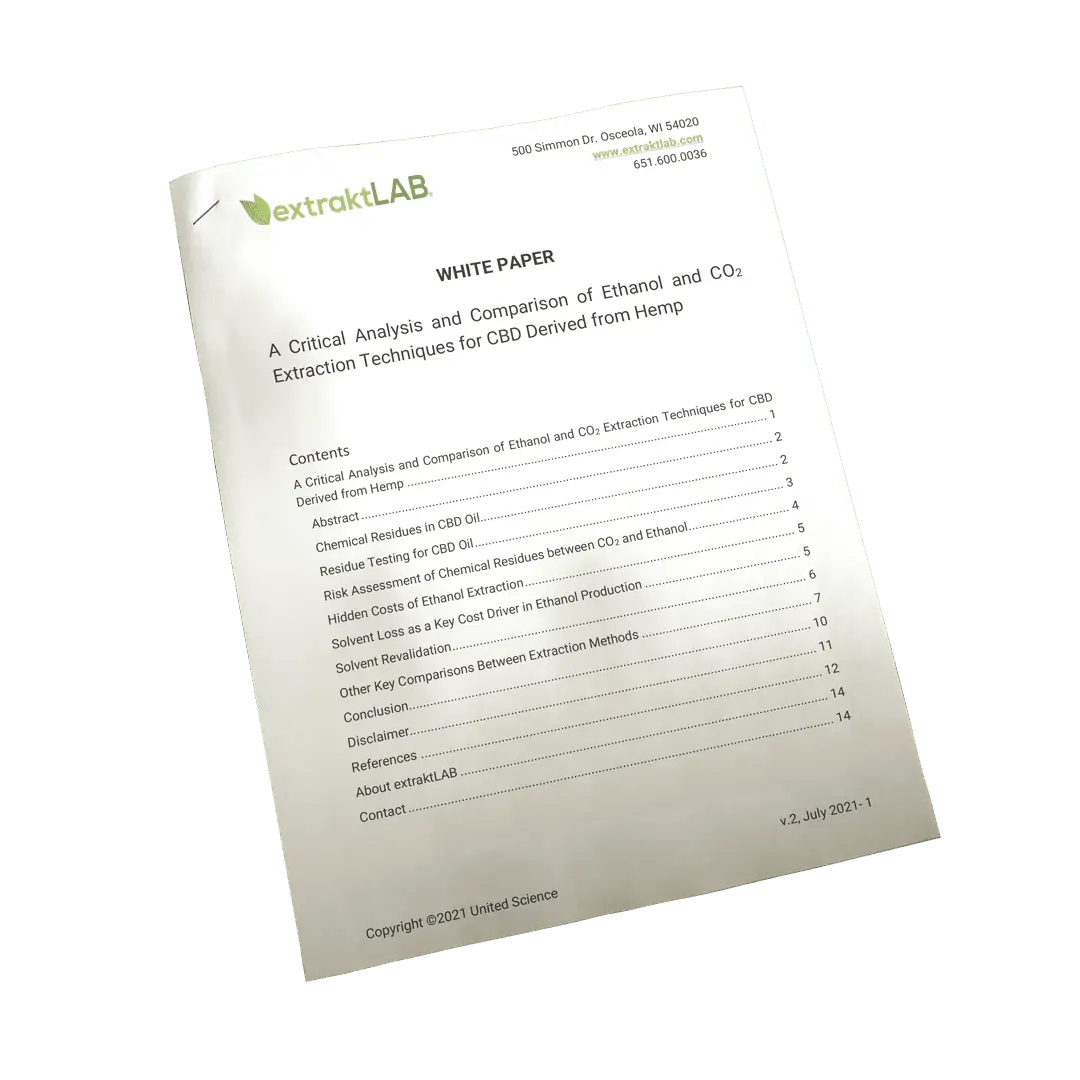CO2 Extraction vs. Ethanol White Paper

Critical Analysis and Comparison of Ethanol and CO2 Extraction Techniques for CBD Derived from Hemp
Ethanol has been used as a solvent to extract essential oils from botanicals for centuries. Recently, ethanol has been used to extract the cannabinoids CBD and CBG from hemp, and THC from cannabis. Ethanol is an attractive solvent because it is readily available in commercial quantities and relatively inexpensive in a denatured state. There are two main categories of ethanol: denatured or food grade. 200-proof food grade ethanol is pure and contains very little water. Denatured ethanol is typically 196-proof or less and contains added chemicals known to be detrimental to health. Most licensed processors of hemp and cannabis employing ethanol extraction use denatured ethanol to greatly reduce the cost of operation, but do so without knowing how this impacts the public. This article compares denatured ethanol vs. CO2 as an extraction solvent. We discuss chemical residue contaminants, testing issues, solvent reuse, and solvent revalidation requirements. We also discuss and compare solvent loss costs for the two extraction techniques and show how solvent losses can contribute to high operating costs. Finally, we present a comprehensive comparison of ethanol and CO2 as extraction solvents.